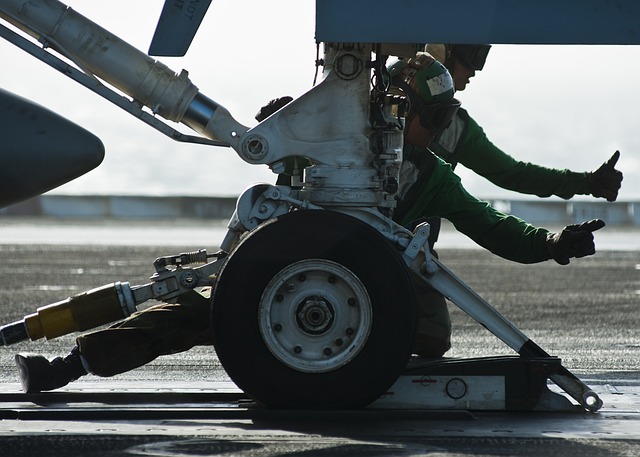
Sea State
President Trump has been blowing off steam about the US Navy’s catapults. Apparently, the Electromagnetic Aircraft Launch System (EMALS) on the USS Gerald Ford—‘slated to become the crown jewel of the US Navy’—may not be long for this world. In an interview with TIME, Trump queried the use of ‘digital’ catapults and appeared to suggest a reversal to the previous generation steam-powered catapults. It’s true that EMALS has been beset by cost and schedule overruns, but the system is expected to save the Navy US$4 billion in maintenance costs over the ship’s 50-year lifetime (not to mention its many other potential benefits). Facing an impossible re-engineering task on the Ford class, and said to be ‘blindsided’ by Trump’s comments, Navy officials have declined to comment.
The Philippines is buying a second-hand warship from South Korea for just US$100 (!). But, the 30 year old Pohang-class corvette was decommissioned in December 2016 and will require considerable investment (an estimated US$4 million) to return to service. And it won’t come with all its weaponry. Luckily, South Korea, which is working to build its own arms export industry, ‘is well positioned to re-equip it for the Philippines, at a price’.
Flight Path
A Russian Su-27 fighter came within 20 feet of a US Navy P-8A Poseidon maritime surveillance aircraft last Tuesday in international airspace over the Black Sea. Russia’s defence ministry said it deployed the aircraft upon locating ‘an air target approaching the Russian state border’, after which it executed a ‘greeting manoeuvre’. US Naval Force Europe Capt. Pamela Kunze said the interaction was ‘safe and professional’, despite the ‘unusually close’ distance. And then on Friday, a US P-8 had another unscheduled rendezvous with a Su-27 over the Black Sea—this time coming within 40 feet. To avoid mid-air collisions over Syria, Washington and Moscow last week resumed military communications after their suspension in the wake of the US airstrike at Shayrat airbase.
Turkey has finalised the contract to purchase 52 MFI-395 Super Mushshak military training/light attack aircraft from Pakistan Aeronautical Complex (PAC)—a deal that was settled on 10 May on the sidelines of the 2017 International Defence Industry Fair in Istanbul. Last July, PAC won the competitive tender to replace Turkey’s ageing fleet of Italian Leonardo light trainers. This will be PAC’s largest order to date, and follows Qatari and Nigerian orders of the Super Mushshak in 2016. The MFI-395 is a PAC licence-built variant of Sweden’s Saab MFI-17 Supporter aircraft, and was designed to provide primary flight training to Pakistan Air Force pilots.
Rapid Fire
On 10 May, a written statement from the Pentagon announced the US would begin stepping up its weapons deliveries to the People’s Protection Units (YPG) in Syria. The YPG is a Kurdish militia group seen as a valuable partner in the fight against Islamic State. The weapons the US will provide include heavy machine guns, mortars, anti-tank weapons, armored cars and engineering equipment. Following the announcement, Turkey warned that there would be a ‘blowback’ against arming a group they consider to be a terrorist organisation. Only last month, Turkey bombed a number of YPG bases in Syria and Iraq.
The US Marine Corps has released a recruiting ad that, for the first time, focuses on female marines in combat. The ad shows a young female rugby player standing up to her bullies—skip forward several years and that same girl is now a marine. Even cooler, the woman in the ad is played by an actual US marine, Captain Erin Demchko, who has previously served in Afghanistan. And speaking of elite military forces, a freelance journalist writing for Popular Mechanics recently spent 48 hours with the US Air Force Special Operations Command (AFSOC), touring their training facilities and experiencing first-hand ‘what makes AFSOC among the most versatile forces in America’s military arsenal’.
Zero Gravity
Let’s talk optics and space—first up, space telescopes. NASA’s US$8.8 billion James Webb Space Telescope, the more powerful successor to the Hubble, has arrived in Houston for final cryogenic testing. The precision-engineered telescope will spend almost 100 days in vacuum and deep-freeze, mimicking the deep-space conditions in which it will ultimately operate when it’s launched next year.
Other optical instruments have also been on show with India drawing plaudits for its so-termed ‘space diplomacy’. The GSAT-9 communications and imaging satellite, with the moniker ‘South Asian satellite,’ was launched by India earlier this month. It’s set to be free-to-use for Bangladesh, Bhutan, Nepal, the Maldives, Afghanistan and Sri Lanka. Pakistan rejected India’s offer to share the satellite’s capabilities.
It’s a good look for a country that’s seeking to grow its soft power, but India’s not the only one trying to leverage space in a diplomatic setting. Indian pundits see the launch in the context of growing Chinese influence in South Asia. Aside from helping Pakistan’s space efforts, China’s also been talking with representatives from the European Space Agency. The subject matter is a possible partnership in an eventual moon outpost, but it’ll be a long road and China’s civilian space program is still inseparable from its secret military efforts. Still, amid this space drive and extended ambition, four Chinese students just moved into the so-called ‘Lunar Palace’, a sealed lab and self-contained ecosystem located in Beijing and intended to simulate conditions in a lunar habitat.

